- Home
- Iris Murdoch
The Good Apprentice Page 17
The Good Apprentice Read online
Page 17
They had reached the road. The sound of the electric saw had stopped. It was beginning to rain.
‘I don’t want to send any letters,’ said Edward. ‘Don’t you want to know whether you’ve got one?’
‘Oh, I don’t get any. There’s the footpath. But now it’s raining — ’
‘Let’s go back.’ They turned about to face the east wind. As Seegard came in sight Edward said, ‘It’s such a strange-looking house, sometimes it seems quite senseless, I mean I don’t know how to look at it, and it’s as if that makes it invisible.’
‘I know what you mean. Jesse meant it to be hard to look at.’
‘Perhaps it’s something to do with his sense of the past! Ilona, how old are you?’
‘Eighteen. And Bettina’s twenty-four.’
‘I thought she was older, I thought you were younger. Oh Ilona — ’
‘What?’
As Edward stared at Seegard he felt as if it were about to vanish and he were making it exist. He could not think what it was that he wanted to say to Ilona. Was he glad or sad that she was his sister and not just a girl? He very much wanted to kiss her. Still staring at the house he fumbled for her cold hand and pressed it.
My hands are growing old, thought Midge McCaskerville, they are dry, the veins are becoming prominent, they are spotted, they will soon be wrinkled. She was sitting in the drawing room of the house in Fulham. The room was full of tulips, yellow tulips which she had bought that morning, parrot tulips which Ursula had sent her. Ursula often sent her flowers. The yellow tulips stood upright in black Wedgwood jugs, the parrot tulips, striped red and white, drooped gracefully from fanciful mauve art nouveau vases. Midge had been looking at them intently. She loved the particular silence which the stilled life of flowers could give to a room. Now, as she returned to her task of altering a dress, she could not avoid looking at her hands. She had boldly cut a foot off an evening dress, which, she noticed, she had not worn for some time. She periodically assessed her instinctive relationship to her garments. She had bought two yards of rather expensive material at Liberty’s so as to set in two discreet panels to widen the skirt. She enjoyed altering her clothes. In the order of such consolations, flowers came first, clothes second. Thomas had said, joking of course, ‘You ought to have been a botanist or a couturier!’, but it displayed how little he understood her. Flowers and clothes were for Midge, although she ‘busied herself’ with them, contemplative matters, they slowed the pace of the world toward a point of absolute repose. When she sewed or arranged flowers she moved very slowly, often pausing. She liked needles and coloured thread and the act of sewing. She had no sewing machine. Thomas had once said he liked to see her sewing, it made him feel calm. She was now looking at her hands, her right hand holding the needle, now still, poised upon the red and black figured silk. The needle, so clean and bright, so sharp and full of purpose. Her hands so stained with mortality. The panels were of plain red silk and looked so well with the red and black material that she considered but rejected the idea of ‘making a feature’ by letting them into the front and the back. The silk dress, carefully unpicked, trailed over her knees onto the formal oriental daisy-field of the carpet. It was a sunny afternoon, the climbing convolvulus curtains had been drawn well back and the door opened to the balcony, from which a little white cast-iron stairway led down into the garden, where the prunus was in full flower, the crocuses were over, and the roses yet to come. The stone lion’s head in the brick wall was to have dripped water into a basin below, but Thomas had never managed to make this happen. Against the walls, about the small sleek lawn, Midge had chosen for her town garden bushy ‘old roses’ and pretty-leaved shrubs, veronica, euphorbia, buddleia, rhus cotinus, and Japanese maple.
Today was the day when Stuart Cuno was coming to see Thomas to ‘have a talk’. Thomas, she knew, had dropped a hint and had been delighted (though he had tried to conceal this) when Stuart had telephoned to say he would come. Ostensibly the conversation was to be about Edward. But Thomas had unusually cancelled a patient (not Mr Blinnet of course) and come back early from the clinic. Thomas was pleased at the prospect of this ‘heart to heart’. She thought, he’s gloating because he’s going to get his claws into Stuart. She felt uneasy at this thought of Stuart and Thomas coming closer together, perhaps becoming intimate. Midge did not altogether like Stuart. She was one of those who apprehended his ‘white grub’ persona. She saw him as something unnatural, freakish and cold.
‘Have you spoken to Meredith about those earphones?’ said Midge to Thomas who had just come into the room. ‘Ursula says they’ll damage his hearing.’ She could hear herself speaking in a complaining uncommunicating tone of voice. Yet did Thomas hear this tone? He seemed not to.
‘Yes, I did say,’ said Thomas. ‘That’s all right. What are you doing to that dress?’
‘Shortening it, widening it.’
‘It’s such a pretty dress. Did you have your hair done today?’
‘No, can’t you see!’
Thomas stood at the window, looking out at the garden, smiling, the sun on his face, his clever inward face, his shrewd sardonic quizzical self-satisfied face which had once seemed to her so beautiful.
She thought, he is not thinking about me at all, he deserves to lose me, he thinks all my activities are a form of play. And perhaps they are. Except for one. Except for one, except for one. Oh God — how much I pity myself — and Harry — and Thomas —
‘Where is Edward?’ said Stuart Cuno to Thomas McCaskerville.
‘Fled.’
‘But you know where to?’
‘Yes.’
‘And he’s OK?’
‘That I don’t know. Is Harry worried?’
‘Not very,’ said Stuart. ‘He assumes you’re in control. By the way, I looked into Meredith’s room on the way and I don’t at all care for the posters he’s put up. Some of them are pretty vile.’
They were in Thomas’s bookish study, where Stuart had refused to sit in the armchair in which Edward had sat not long ago. Stuart roved, examining the picture by Cleve Warriston, peering at Thomas’s books, admiring the pinkish foam of the prunus tree. These things of course Stuart had seen before, but he seemed to review them now with a certain intensity. He could not be said to be nervous, just restless and tingling with vitality. His thick fair hair, about as long as that of a long-haired dog, was slightly curly and grew well down at the back of his neck. His yellow-amber eyes, animal-like too, were moist as with recent laughter, or perhaps, as a dog’s sometimes seem to be, with pleasurable affection; while his rather sweet lips, pink as a child’s, were mobile now, pouting and faintly smiling as at some quick play of thought. He was dressed for the warm day, in baggy light brown cotton trousers and a blue open neck shirt not very well tucked in. He looked for a moment to Thomas just like a lively healthy young man. That this was so noteworthy, given that he was a lively healthy young man, suggested to Thomas in what other and strange lights he had lately been viewing his youthful friend. It had taken Thomas a little time to decide that Stuart, in his ‘new phase’, was genuine; but genuine what remained the question.
‘So you haven’t decided yet what you want to do, what job I mean?’
‘I wish I hadn’t talked about all that,’ said Stuart, frowning.
‘Well, people will ask questions, including impertinent ones about your sex life.’
‘Yes.’
‘You still imagine you have to answer all questions promptly and truthfully. But you don’t have to announce your programmes, only to carry them out.’
‘I shouldn’t have said that about chastity,’ said Stuart, ‘just have got on with it. You’re right — and yet I couldn’t lie. And I don’t want to practise being evasive.’
‘Can a man be absolutely truthful? These are problems most people solve by instinct, usually wrongly, without even noticing. But about the job, if you don’t mind my asking.’
‘Oh you can ask. Of course I may not get any job, no
t everyone can now. I thought of something with prisoners — like a probation officer — or some sort of social work, to do with housing or — ’
‘It’s not all that easy to help people,’ said Thomas, ‘and they can hate you for it. But shouldn’t you do something which involves intellectual studies? You’ve been learning hard all your life, won’t you miss it?’
‘I expect I’d have to take some training course. Anyway I propose to go on learning, that’s the point! One thing I think I’ve learnt is how to learn.’
‘Apprenticed to goodness — a rather special case. But I meant continuous academic learning, learning with books.’
‘I want to get away from abstract stuff.’
‘Or shouldn’t you perhaps read something about your special subject?’
‘My what?’
‘About religion, theology, metaphysics, that sort of thing.’
‘Thomas, you’re joking!’
‘No, just fishing around. So you’re not tempted to write something about it yourself, to try to explain — ’
‘Write?! Explain?!’
‘All right, I’m just clearing the scene a bit.’
‘Look I’m not against books, quite the contrary, children now are brought up on computers, not books, that’s part of the trouble. But you seem to regard my education as a pile of stuff, possessions, assets to be used not wasted. I don’t want academic studies now, I want to start from scratch.’
‘Not an easy place to get to. You’re sure it isn’t sour grapes, because you can’t go on being a star?’
‘I’m not a star.’
‘You got a brilliant first in maths.’
‘Yes, but anybody can. I mean if you can think in a certain kind of way at a certain moment you’re bound to get a first, it’s not like other subjects. But that doesn’t mean you can do anything else or anything further, even Newton was done for at twenty-four. All that’s a red herring anyway. The modern world is full of theories which are proliferating at a wrong level of generality, we’re so good at theorising, and one theory spawns another, there’s a whole industry of abstract activity which people mistake for thinking — ’
‘Yes, I understand, but shouldn’t there be theorists who can make radical criticisms of theorising?’
‘Maybe, but I’m just not interested in that, and I’m passionately interested in this other business — ’
‘Yes. What is it however? Do you imagine that you can save the world simply by proving that it is possible?’
‘Everyone seems to want to make a mystery or drama out of it, but it’s desperately simple really, just not to enter the machine.’
‘The machine?’
‘You know what I mean, the usual things, corruption — corruption, you know, it happens so fast.’
‘Yes. The second bull-fight is easier than the first, Byron tells us he was hardened after two executions.’
‘And chastity — ’
‘Sex is said to be the image, even the substance, of spirit, and by abstention its instrument — but a dangerous one. All spirituality is dangerous, especially asceticism.’
‘You think I might break out!’
‘Nothing so simple.’
‘All that’s what I mean by drama and mystification. In order to be of use I’ve just got to live simply and be alone. There’s nothing mysterious about that. Priests have been doing it forever. I could have gone to a Catholic school, into a seminary, on to ordination — ’
‘Yes, but you didn’t.’
‘It’s a pity about the priesthood — being a sort of obscure parish priest — that would have been bang on, for the job, for the style of it I mean — ’
‘But why shouldn’t you think now about being ordained? Never mind about dogma, it’s all being changed anyway. Theologians are working as fast as they can precisely to reach people like you. The theological rescue party is on the way. Soon you will hear the sound of the bagpipes.’
Stuart laughed. ‘Yes, but still that’s for insiders. It’ll take a long time to stop “God” being the name of someone. I don’t want any God at all, even a modified modernised one. I’ve got to be sure he isn’t in it somewhere hidden away. God is an anti-religious idea. There is no God.’
‘As eastern religions have always told us. Why not — ’
‘I’m not concerned with the east. I’m western. It’s got to be done differently here.’
‘Some say that God has gone away to a vast distance, that for a time the Transcendent is silent.’
‘That’s an act in a play. There is no play.’
‘Let’s say that God is a permanent non-degradable love object. Must we not imagine something of the sort?’
‘There are plenty of such things, we don’t have to imagine them as a person existing somewhere else, the world is full of them if we look.’
‘You mean symbols, sacraments?’
‘You will talk jargon — ’
‘Trees, animals, works of art — ?’
‘Look, I’m only doing what any man has to do now, manage alone. Only I don’t mean that in any sort of dramatic heroic way. I just mean without the old supernatural scenery.’
‘People will say if it’s alone it must be personal fantasy, without substance. Without mythology or theology or institutions — and I imagine you’re not looking for a master or guru — ’
‘Of course not. To imagine that somewhere at the end of the world in a cave there’s a wise man — that’s sentimentality, it’s masochism, it’s magic — ’
‘You don’t want to be under obedience.’
‘I am under obedience, but not like that — ’
‘You’re dedicated.’
‘It’s got to be everything, my whole being, my whole life, not something part-time, not something optional — Just to try to be good, to be for others and not oneself. To be nothing, to have nothing, to be a servant — and for that to be one’s whole occupation. It’s all, everywhere, as if everything spoke it and showed it — and it’s so deep that it’s entirely me, and yet it’s entirely not me too — ’
‘Steady on. All that sounds like God. You say there is no God, then you aspire to be God yourself, you take over his attributes. Perhaps that is the task of the present age.’
‘I didn’t say I was God! I just mean the way — the way to — ’
‘Kafka said there is no way, there is only the end, what we call the way is messing about.’
‘Could you say that again?’
‘There is no way, there is only the end, what we call the way is messing about.’
‘I’ll think about that. I just mean I, I privately, am trying to do, at least I’m starting to try to do, something which I’m certain about, which is obvious, and I see everywhere.’
‘Everywhere outside you and inside you too. It’s dark inside, Stuart.’
‘You mean original sin. I’m not concerned with those guilt stories. Oh, of course, you mean the unconscious mind!’
‘Don’t tell me you don’t believe in it.’
‘Nothing so positive. I don’t fancy the idea. It doesn’t interest me.’
‘Perhaps you interest it. Don’t despise the concept. It’s not just an abode of monsters, it’s a reservoir of spiritual power.’
‘Spirits. Magic. No, I don’t like what you’ve just said. It’s a misleading bad idea.’
‘You say you’re not concerned with guilt. Do you imagine you’ll never feel any?’
‘I mean the feeling isn’t important, it may even be bad. One must just try to mend things, do better. Why cripple yourself when there’s work to do?’
‘So you don’t envy Edward his extreme situation?’
‘No, why should I?’ said Stuart, surprised.
‘It’s one method of breaking up illusions of self-satisfaction.’
‘You think I’m self-satisfied?’
Thomas considered this. ‘I’m not sure,’ he said. ‘Your case confuses the concept. I’m waiting to see.’
&nbs
p; Stuart laughed. ‘My father says I’m a hedonist, I’ve chosen the higher selfishness!’
‘To sleep with a clear conscience every night is indeed en-viable.’
‘He meant being ostentatiously poor and looked after by rich friends!’
‘You imagine that you want to lead an orderly monotonous altruistic life — ’
‘Say it, a dull life!’
‘You object to the idea of it being dull. Part of your energy is that you think well of yourself. So you will want some recognition, even drama, the pleasures of self-assertion, to conquer and be seen to conquer.’
‘You’re provoking me!’
‘You think you’re an exceptional person.’
‘There’s something exceptional but it isn’t me. You think I lack humility.’
‘You lack the gift of ordinariness, perhaps essential for your programme. To put it crudely, you have a strong ego. Now isn’t that horrible? You don’t want to be ordinary. You think too much to be ordinary.’
‘I want to be invisible. In a way I’m not there — ’
‘Already?’
‘I’ve never had any sense of identity.’
‘That’s not the same as being unselfish, dear boy!’
‘All right — in a way it is selfish.’
‘It’s choosing a kind of safety. Being alone is safe. Stoicism is safe. Never to be surprised, never to have anything to lose. A source of pride.’
‘I don’t think I’m a stoic. Really it’s worse than that. For I on honeydew have fed and drunk the milk of paradise.’
‘Stuart, could you sit down please. I don’t like your leaning against that window, I feel you might fall out, come into the middle of things, there.’
Stuart sat down in the armchair opposite to Thomas and gazed at him with an exasperating air of good humour. Thomas, who had known his face for a long time, through boyhood and adolescence, wondered at how unchanged it seemed, how clean and smooth and glowing, as if Stuart had kept all his faces, even his baby face, as satiny masks superimposed through which this lively intelligence and maddeningly confident self-being was now looking out. Thomas had to tell himself that this was after all a vulnerable inexperienced perhaps entirely deluded young man. He examined the golden points of Stuart’s well-shaved beard.

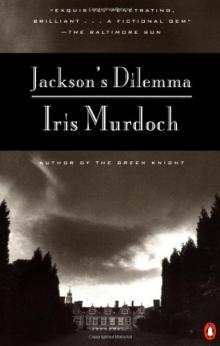 Jackson's Dilemma
Jackson's Dilemma The Flight From the Enchanter
The Flight From the Enchanter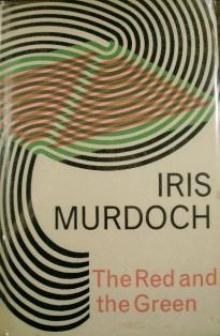 The Red and the Green (Vintage Classics)
The Red and the Green (Vintage Classics)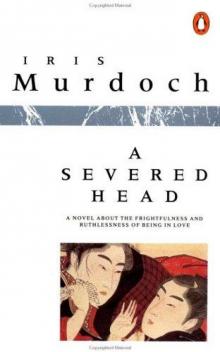 A Severed Head
A Severed Head The Black Prince
The Black Prince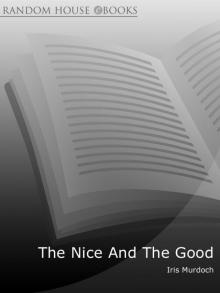 The Nice and the Good
The Nice and the Good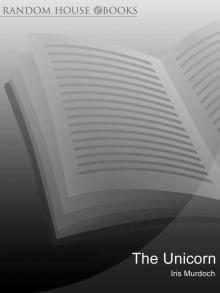 The Unicorn
The Unicorn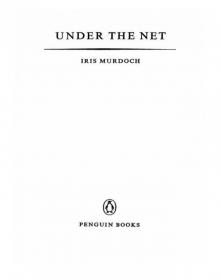 Under the Net
Under the Net The Italian Girl
The Italian Girl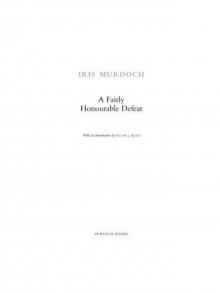 A Fairly Honourable Defeat
A Fairly Honourable Defeat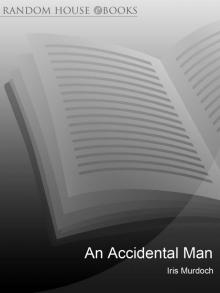 An Accidental Man
An Accidental Man A Word Child
A Word Child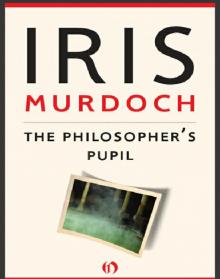 The Philosopher's Pupil
The Philosopher's Pupil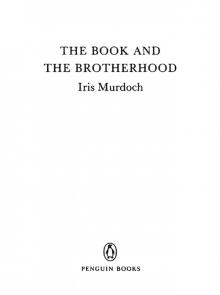 The Book and the Brotherhood
The Book and the Brotherhood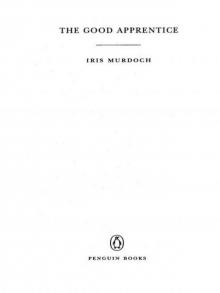 The Good Apprentice
The Good Apprentice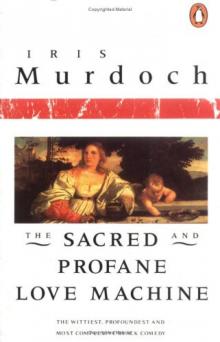 The Sacred and Profane Love Machine
The Sacred and Profane Love Machine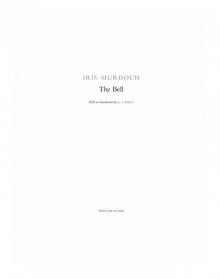 The Bell
The Bell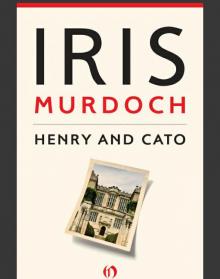 Henry and Cato
Henry and Cato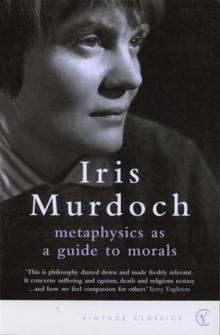 Metaphysics as a Guide to Morals
Metaphysics as a Guide to Morals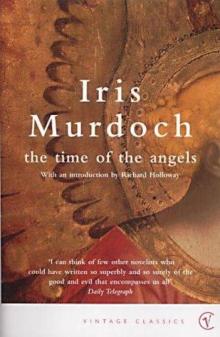 The Time of the Angels
The Time of the Angels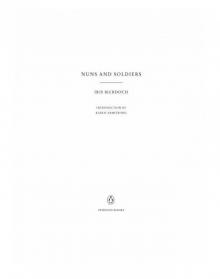 Nuns and Soldiers
Nuns and Soldiers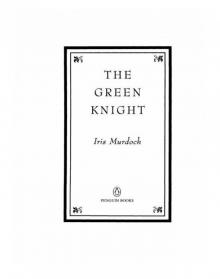 The Green Knight
The Green Knight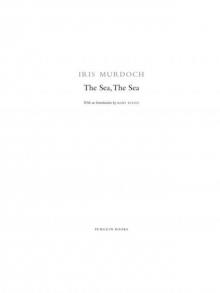 The Sea, the Sea
The Sea, the Sea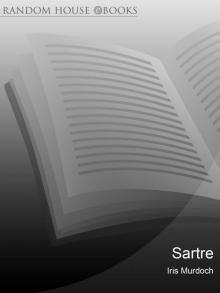 Sartre: Romantic Rationalist
Sartre: Romantic Rationalist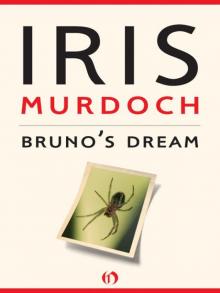 Bruno's Dream
Bruno's Dream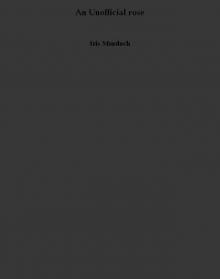 An Unofficial rose
An Unofficial rose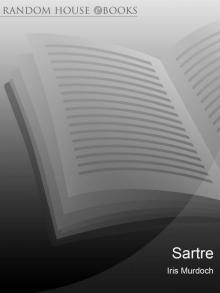 Sartre
Sartre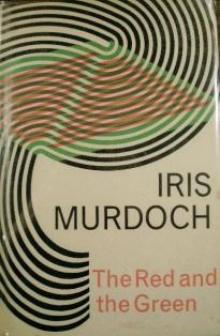 The Red and The Green
The Red and The Green